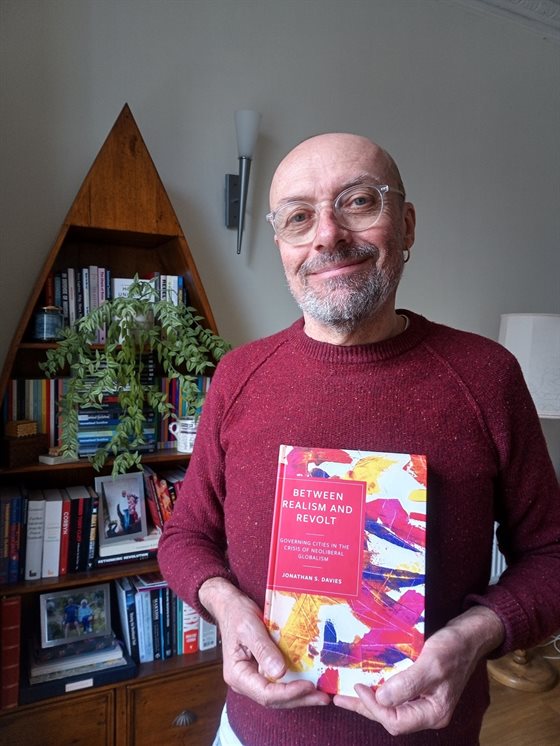A leading governance theorist and professor at De Montfort University Leicester (DMU) has been awarded for his commitment to urban scholarship and practice.
Professor Jonathan Davies, the founding Director of the Centre for Urban Research on Austerity and Professor of Critical Policy Studies at DMU, has been admitted to the Urban Affairs Association (UAA)’s Distinguished Service Honor Roll in recognition of his contribution to the Association and impactful service leadership.
The UAA, an international professional organisation for urban scholars, researchers and non-profit service providers, is dedicated to creating interdisciplinary spaces for engaging in intellectual and practical discussions about urban life.
Professor Davies recently led a major global study, looking at austerity, resistance and transformation in the period since the Global Economic Crisis of 2008-9, as a result of which he recently published a new book ‘Between Realism and Revolt: Governing Cities in the Crisis of Neoliberal Globalism’.

Prof Davies' new book is centred around the major global study he led
“For decades, cities across the world have been grappling with budget squeezes, public service cuts and waves of institutional restructuring,” explained Professor Davies.
“For many, the 2008 financial crisis marked a new an intensified phase, for which former British Prime Minister David Cameron coined the term ‘age of austerity’.
“Our research explored the many ways that the age of austerity has been experienced, interpreted, governed and contested in cities around the world.”
Led by Professor Davies, researchers spoke to a wide range of people in eight different cities, including Athens, Baltimore, Barcelona, Dublin, Leicester, Greater Dandenong (Melbourne), Montréal and Nantes.
They interviewed elected politicians, public officials, business leaders, voluntary and community organisations, services users, anti-austerity activists and trade unionists, with the aim of establishing a perspective of how the cities deal with and understand the problem of austerity.
Professor Davies’ new book diagnoses what is going on in different cities and explores potential drivers of change away from ‘austerity urbanism’ (a notion that refers to budget cuts, marketisation, service and state restructurings emerging from crisis situations).
He added: “It delves into the means by which cities get sucked into austerity, or find ways around it, and the comparative implications of what we find in particular cases for those who see austerity as a flawed project and are looking for alternatives.
“The political motivation for change is there, as witnessed in repeated social explosions over the past decade and the emergence of ‘new municipalist’ approaches in cities like Barcelona.
"Yet despite the pandemic, and politicians distancing themselves from the language of austerity, it clearly remains a major threat to people and planet.”
Posted on Thursday 20 May 2021